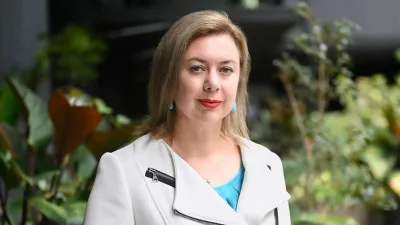No-deal Brexit looking likely for UK


The possibility of the UK crashing out of the European Union (EU) without a deal is looking like the most probable outcome, according to T. Rowe Price, despite efforts by the UK Parliament.
The UK is due to leave the EU on 31 October but UK Prime Minister Boris Johnson has until 19 October to either pass a Brexit deal in Parliament or persuade lawmakers to approve a no-deal Brexit.
After that date, Johnson will have to ask EU for a Brexit extension to 31 January, 2020 but has indicated he is loath to do this.
Quentin Fitzsimmons, portfolio manager and Brexit specialist at T. Rowe Price, said Johnson’s reluctance to ask for a Brexit extension increases the risk of a Britain leaving without a deal.
“Overall, I think the probability of the UK leaving the EU without a deal on October 31 is now around 55%.
“I believe there is around a 35% chance of an extension to Article 50 and a small, but not insignificant, chance of an amended version of Theresa May’s withdrawal agreement being approved.
“In the event that an extension to Article 50 is granted, I believe the probability of a no deal exit by the new
deadline will be 65%, with a 35% chance of an amended version of the withdrawal agreement being agreed.”
As to the impact of Brexit on UK assets, Fitzsimmons said UK equities were likely to remain muted relative to other markets and this would continue after Brexit. As a result of political risks, British stocks were the cheapest they had been for 20 years.
The FTSE 100 has returned 4.6% over one year to 30 September, according to FE Analytics, versus returns of 14.5% by the ASX 200.
For sterling, this could come under renewed pressure if markets agree that no-deal Brexit is likely and would remain muted for some time.
Fitzsimmons added: “The big question is how Johnson will respond if, as seems likely, he is compelled by law to ask the EU for a Brexit extension to January 31 next year. The last few weeks before the October 31 deadline could see considerable market upheaval”.
Performance of the ASX 200 versus FTSE 100 over one year to 30 September, 2019
Recommended for you
The director of Ascent Investment and Coaching, Michael Dunjey, has been charged with 33 criminal offences.
Adviser Ratings’ latest financial landscape report finds there is a demographic of advice practices achieving an average revenue of $5 million, with only 3 per cent of practices overall seeing a revenue decline.
The FAAA is calling for regulators to take a partnership approach with financial advisers regarding incoming legislation, rather than treating the industry as “guinea pigs”.
There have been strong numbers of returning advisers this year so far, according to Wealth Data, already surpassing the same period for 2024.















